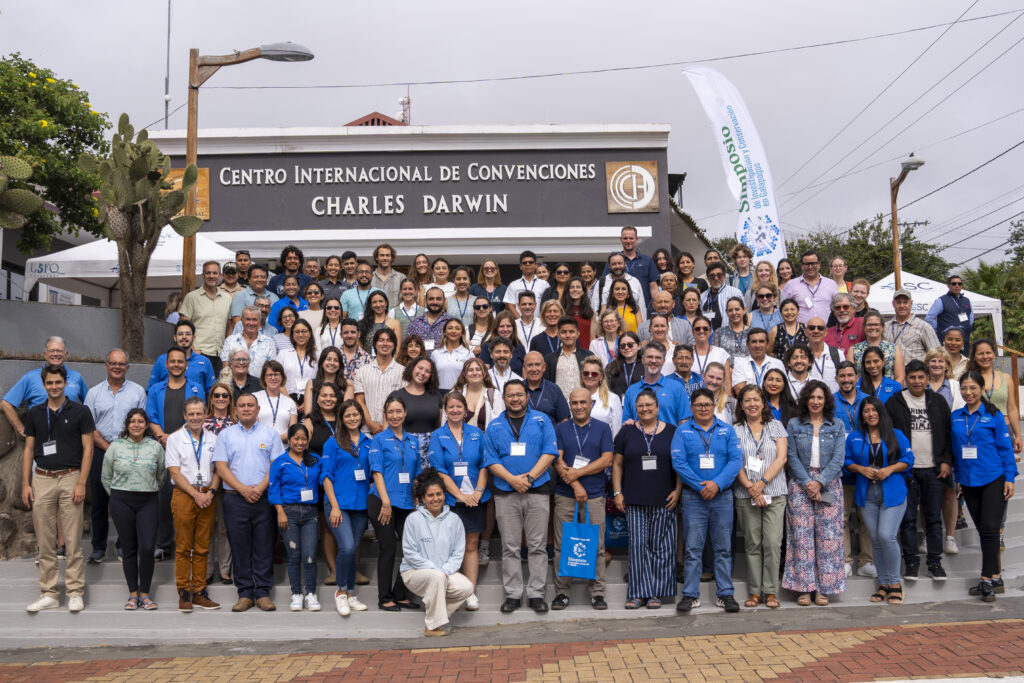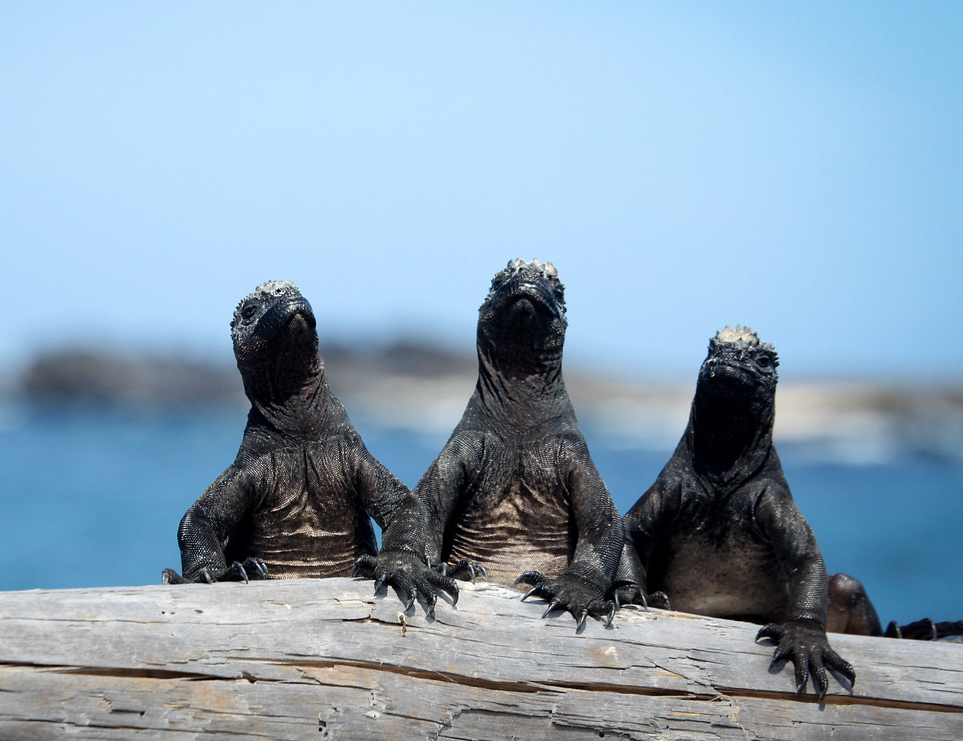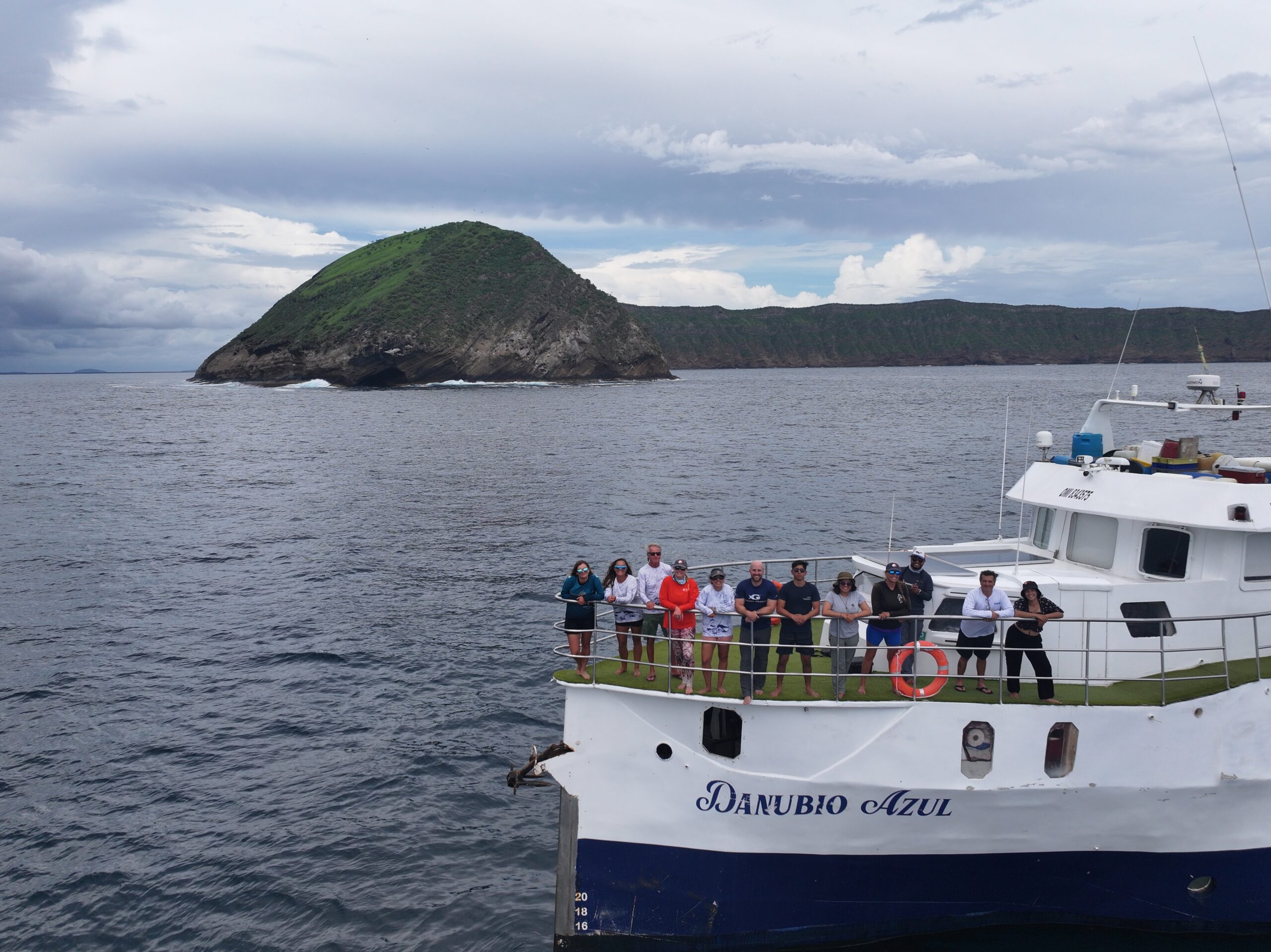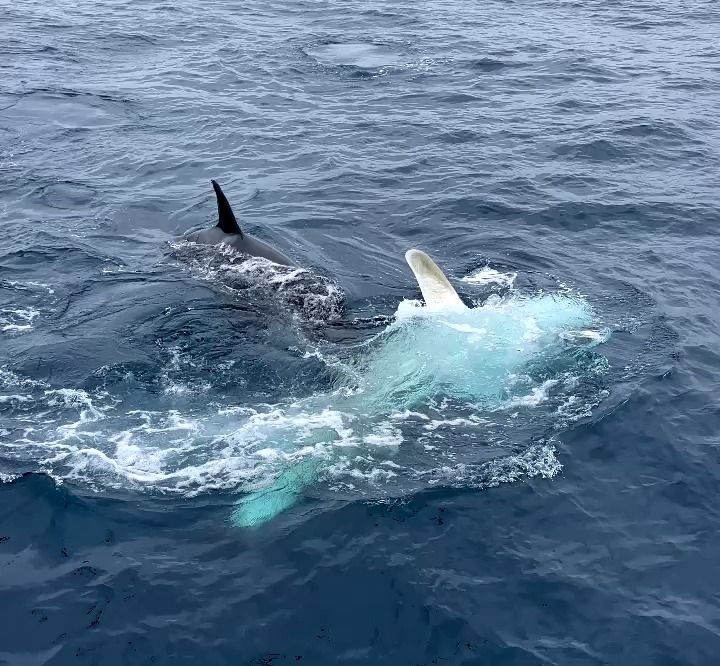Puerto Baquerizo Moreno, July 2024 – The VI Symposium on Research and Conservation of Galapagos, a multidisciplinary event that brings together experts and the community, concluded successfully after presenting the most relevant scientific research conducted in the archipelago. This annual event, organized by the Galapagos Science Center, the University of North Carolina at Chapel Hill, and the Universidad San Francisco de Quito, has established itself since its first edition in 2016 as an essential platform for the exchange of knowledge and strategies for conserving Galapagos’ marine and terrestrial ecosystems and enhancing community health and well-being.
During this symposium, dedicated efforts to address the socio-environmental conflicts faced by the local population were highlighted, emphasizing the importance of scientific research as a key tool in the search for sustainable solutions. Participants from various disciplines shared their studies and experiences, underscoring national and international collaboration in the conservation and restoration of the archipelago’s biodiversity.
The results presented included significant advances in monitoring endemic species, environmental impact mitigation strategies, and education, health, and community awareness programs.
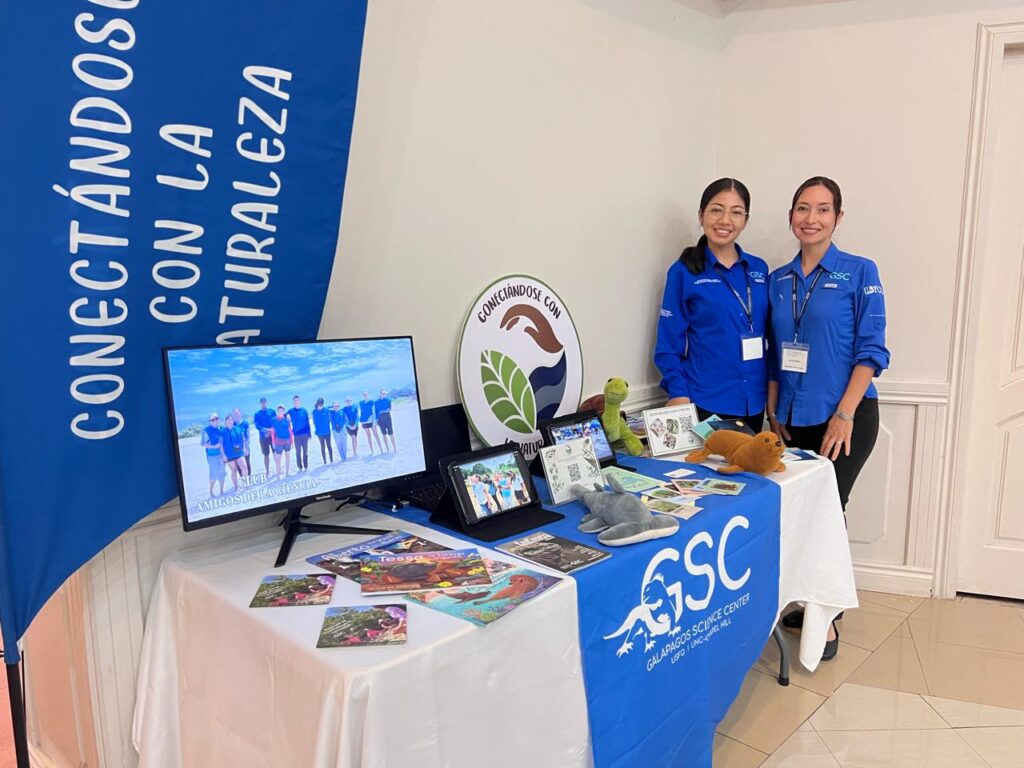
Additionally, the event provided a valuable opportunity for local community members to present and share their scientific and conservation efforts, thus enriching the understanding and collaboration between scientists and island residents.
Andrea Encalada, Vice-Rector at the Universidad San Francisco de Quito stated, “I found this space different from other times because it is now much more interdisciplinary. People meet, talk, and see how to make those connections to unite research.”
The VI Symposium included a total of 22 posters and 41 oral presentations, with more than 315 attendees, including researchers, professors, students, and residents of the enchanted islands. These activities allowed participants to explore various topics and discover new perspectives in the conservation of Galápagos.
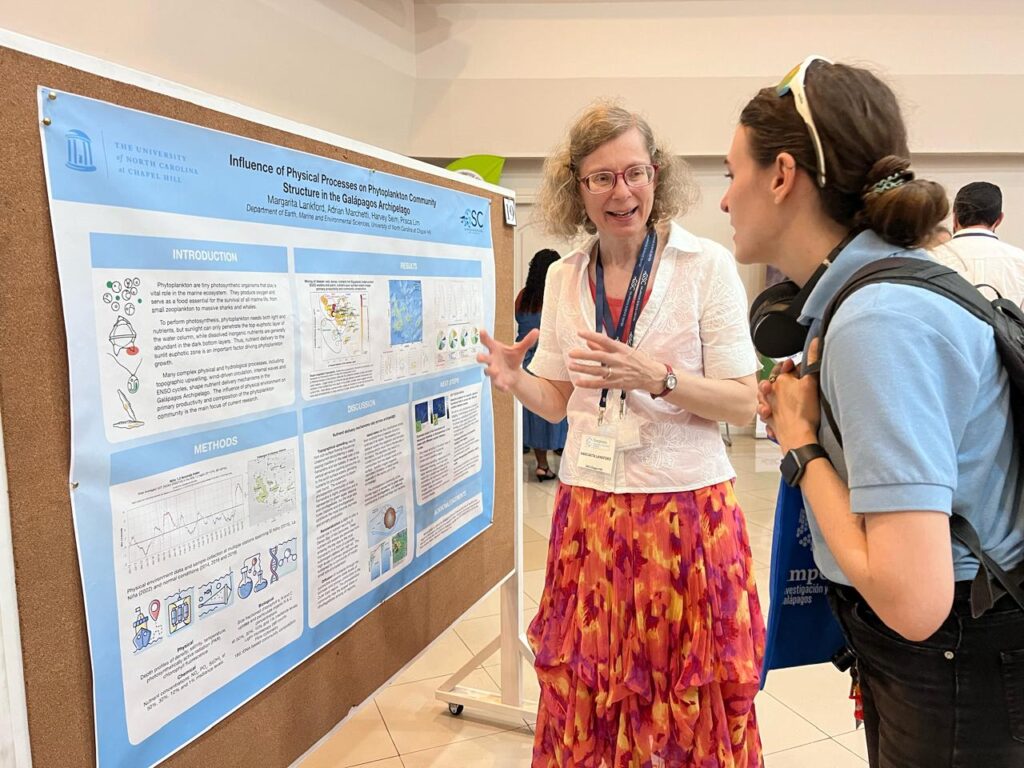
Adrian Marchetti, researcher at the University of North Carolina at Chapel Hill, commented, “The symposium is an opportunity to share our findings with other scientists from around the world, as well as with the people of the Galápagos Islands. For more than five years, we have participated in scientific expeditions to determine how oceanographic conditions can influence plankton richness. With this information, we have built a database that allows us to learn something new each time we go out about the effects of climate change in the region and present updated findings here at the Symposium.”
This exchange of knowledge not only strengthens the scientific basis for decision-making, but also fosters a sense of responsibility and commitment among local residents towards the preservation of their natural environment. Kathy Coquinche, an environmental educator at the Charles Darwin Foundation, shared, “It has been very good to get involved in these projects because it is very important for the community to know the work being done every year with great effort and dedication, which you do through the Galapagos Science Center.” Giovanni Rosania, a professor at USFQ, left the Symposium feeling inspired, stating,”I believe the impact that can be achieved on the island, both in terms of conservation and socially and economically, speaking of sustainability, is super important.”
This year’s edition reaffirmed the ongoing commitment of the organizing institutions and participants to protect and restore the natural treasures of Galapagos. Collaboration between the scientific community and local residents remains fundamental to facing environmental challenges and ensuring a sustainable future for the archipelago.

